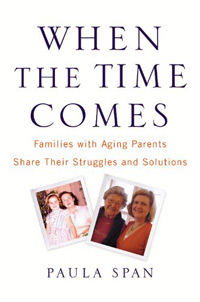 Live as if you were to die tomorrow. Learn as if you were to live forever, said Mahatma Gandhi. Sage advice, but how many of us have mastered how to live in the moment and living as if we were to die tomorrow? Thinking about the inevitability of death as we go about our busy lives doesn’t exactly give many of us inner peace.
Live as if you were to die tomorrow. Learn as if you were to live forever, said Mahatma Gandhi. Sage advice, but how many of us have mastered how to live in the moment and living as if we were to die tomorrow? Thinking about the inevitability of death as we go about our busy lives doesn’t exactly give many of us inner peace.
But I recently heard about something attempting to change all that: the Death Cafe. It turns out that Death Cafes not only serve up refreshments, but also an increased awareness of death in order to help people make the most out of life.
Let’s chat about dying
Death Cafes are gatherings based on the ideas of Bernard Crettaz, a Swiss sociologist who wanted to bring death into everyday conversation through discussion groups. And, while death cafes are not known as bereavement groups, they perhaps can help some people through the grieving process.
 In a New York Times piece titled Death Be Not Decaffeinated: Over Cup, Groups Face Taboo Paula Span, author of When the Time Comes: Families With Aging Parents Share Their Struggles and Solutions, notes that Death Cafes have sprung up in dozens of cities around the country: “Offshoots of the ‘café mortel’ movement that emerged in Switzerland and France about 10 years ago, these are not grief support groups or end-of-life planning sessions, but rather casual forums for people who want to bat around philosophical thoughts. What is death like? Why do we fear it? How do our views of death inform the way we live?”
In a New York Times piece titled Death Be Not Decaffeinated: Over Cup, Groups Face Taboo Paula Span, author of When the Time Comes: Families With Aging Parents Share Their Struggles and Solutions, notes that Death Cafes have sprung up in dozens of cities around the country: “Offshoots of the ‘café mortel’ movement that emerged in Switzerland and France about 10 years ago, these are not grief support groups or end-of-life planning sessions, but rather casual forums for people who want to bat around philosophical thoughts. What is death like? Why do we fear it? How do our views of death inform the way we live?”
Intellectual death salons
So what are they like? Span explains, “Part dorm room chat session, part group therapy, Death Cafes are styled as intellectual salons, but in practice they tend to wind up being something slightly different—call it cafe society in the age of the meetup. Each is led by a volunteer facilitator, often someone who has a professional tie to the topic….The participants include people of all ages, working and retired, who are drawn by Facebook announcements, storefront fliers, local calendar listings or word of mouth. Women usually outnumber men.”
Don’t fear The Reaper
Span notes that “doctors and scholars who study attitudes toward death say that for most people, such conversations are healthy; talking about death can ease people’s fears and the notion that death is taboo.” And she quotes David Barnard, a professor of ethics at the Oregon Health and Science University who says, “A major part of American society is very averse to thinking about dying.”
Jon Underwood, a web developer, and Sue Barsky Reid, a psychotherapist, inspired by Crettaz’s work, created a widely used model for the Death Cafe and also offered the first one in the United Kingdom in 2011.
The first US-based Death Cafe, complete with tombstone-shaped cookies, Span says, took place several years ago in Columbus, Ohio, organized by Lizzy Miles, a hospice social worker, who says: “At one cafe, I had someone who believed in reincarnation sitting across from three atheists, telling them about her past lives.” Discussions have also taken place on assorted subjects such as euthanasia, the best-selling book Proof of Heaven and do-not-resuscitate orders.
Want to join the party?
 If you’d like to join a Death Cafe, or even start your own, check out Underwood and Reid’s site with a how-to guide on getting started. They have a model for a Death Café, which they state is always offered:
If you’d like to join a Death Cafe, or even start your own, check out Underwood and Reid’s site with a how-to guide on getting started. They have a model for a Death Café, which they state is always offered:
– On a not-for-profit basis
– In an accessible, respectful and confidential space
– With no intention of leading people to any conclusion, product or course of action
– Alongside refreshing drinks and nourishing food–and cake!
They also point out that Death Cafe is a social franchise and note that people who sign up for their guide and principles can use the name Death Cafe, post events to this website and more.
“Death Cafes,” they say on their site, “have spread quickly across Europe, North America and Australasia. As of today, we have offered 2651 Death Cafes since September 2011.”
For whom the bell tolls
While the bell will one day toll for you and me, perhaps death is not something to necessarily fear as the end, but something to embrace while we’re still alive that can bring us fresh appreciation for life.

Rose Caiola
Inspired. Rewired.


